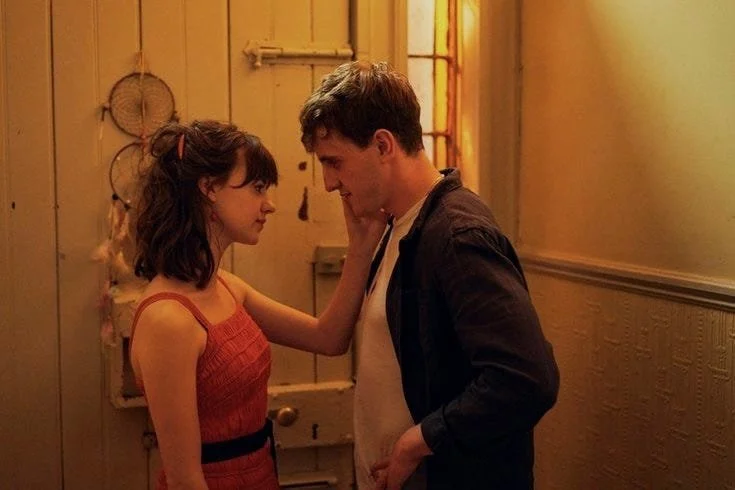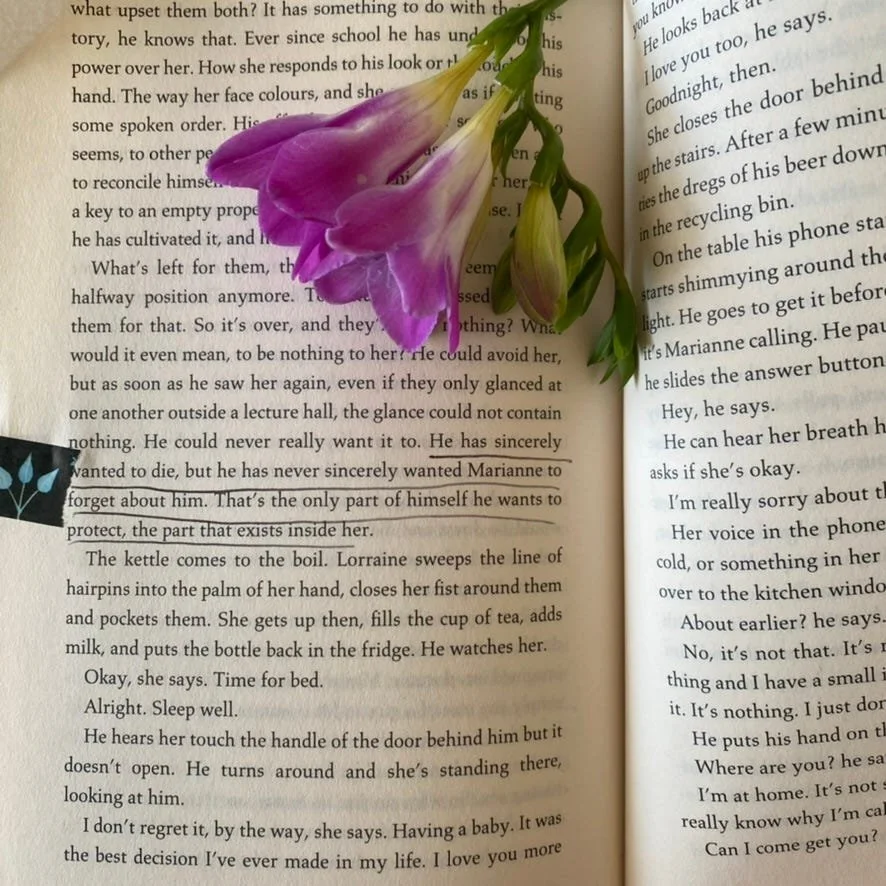There’s a Marianne Inside all of us: What Normal People taught me about love and fear
I was too young when I first discovered Normal People. I watched the show before I read the book, and I thought it was a waste of time. I found myself so frustrated at the slow pace and the insufferable lack of communication that constantly kept the main characters apart. I didn’t resonate with it, I didn’t understand it and eventually I stopped keeping up with the episodes. I was probably about 16.
Then I was 19, and I found myself in a complicated relationship that I could never seem to work out. A relationship that involved a lot of passion and freedom but also a lot of hurt and confusion. That was when I watched the show again and felt like I completely understood it.
I very quickly fell in love with Sally Rooney’s universe of fated lovers and contemporary anxieties. I read the book after finishing the show (I know, shoot me), and the words only made the story more visceral. Rooney truly is a talent that we needed in the times of social media and the lingering isolation of a global pandemic.
When we watch the chronically stagnant on-again-off-again relationship between Connell and Marianne, we see more than just two lovers who can’t commit to each other. We see Connell, a young man riddled with insecurities about the way he is perceived and the decisions he must make. We see a plight universal to teenage boys, where every choice is threaded with a lingering fear of the expectations of manhood and the need for acceptance by other men. It’s a constant confrontation between knowing what you feel and being unable to express it. We also see Marianne, a girl whose pragmatic front and strong conviction is a mask to disguise a deeply rooted hatred of herself. Marianne’s strive to prove her worthiness permeates her desires and makes her equally desperate for love and unwanting of any form of it.
We see two traumatised kids, who somehow find a crack in each other where the other can slot in. Their romance is unconventional, tender, innocent, and at the same time destructive and extremely toxic. Every interaction between Marianne and Connell is clouded by both of their assumptions about the other. Marianne’s fear that Connell doesn’t want her makes it hard for her to trust anything about him, and Connell’s inability to say how he feels makes it hard for him to keep Marianne close.
I see myself in Marianne. I think a lot of women do. I can recall many nights spent in beds beside people I want so badly to want me, forcing myself not to get too close in case they don’t. I relate to the endless pursuit of proving myself, at caring so much about the opinions of boys at school, but pretending that I don’t. I relate to settling into relationships because I don’t believe the person I truly want would ever truly want me. I relate to being hotheaded, opinionated, too loud about too many things, argumentative and critical of other people’s views. I know how it feels to be the other woman, the second option, the least desirable in the group.
It’s amazing how a single moment, a small comment, or a tiny experience during teenagehood can entirely change the perception of yourself you carry with you into your 20’s. Even when you can see that it was completely irrelevant or untrue. When I look back at those formative years, I sense that a lot of my identity was based around a pursuit of proving I was interesting, normal, and did the edgy teenager things. I was really booksmart so I was often assumed to be a ‘try hard’. I’d confront boys when they said shitty things about the girls, so I was labelled a ‘feminazi’. One time a boy in my year called me “the most boring person I’ve ever met” in front of all my friends. This idea of not being interesting enough stayed with me for a very long time, and is perhaps why I feel like crying when I see the haunted expression on Marianne’s face when Connell’s friends say the same sort of things about her. I always thought people assumed I was a smartass, or a prude, and when I left school and got into my first relationship, it was hard not to get addicted to the validation that someone saw me as more than that.
In the time since I’ve been out of school, there’s been some instances where people have told me that they admire me in some way. People who I never expected thought this way. Friends have told me they look up to the way I carry myself, colleagues have told me they think I’m cool and smart. Boys like when I talk about literature. It surprises me every time and I never forget how cherished those people make me feel in that moment. It makes me wonder what would have happened if I never assumed that people thought those things about me in high school. Similarly, I wonder what would have happened between Connell and Marianne if they didn’t assume what the other person was feeling all the time, if they didn’t project their fears and insecurities within those assumptions.
Normal People taught me that fear opens a hole in love. It can suck the love right out of people, or it can be an open wound for an incredibly profound relationship to blossom from. Many of our hearts bear a cautious guard that looks for reasons to doubt ourselves and others. But what is brilliant about Connell and Marianne is their potential for their love to track deep into each other’s pain, and bring out a beautiful, messy, true romance.
There’s a Connell and a Marianne inside all of us, that’s what makes them Normal People.



